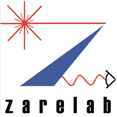The Parsons Award Goes to Zare, Chemical & Engineering News
Chemical & Engineering News (C&EN)
NEWS OF THE WEEK
April 3, 2000
Volume 78, Number 14
CENEAR 78 14 pp.13-14
ISSN 0009-2347
Parsons Award Goes To Zare
The 2001 Charles Lathrop Parsons Award, a prize honoring outstanding public service by a member of the American Chemical Society, will go to Richard N. Zare, Marguerite Blake Wilbur Professor in Natural Science in the department of chemistry at Stanford University.
“Richard Zare is one of the premier scientists in the world,” notes chemistry professor John I. Brauman, a Stanford colleague. “For a scientist of Zare’s stature to devote so much time and effort to the public face of science at such a productive stage in his career is extraordinary.”
“I’m thrilled by this unexpected honor,” Zare says. “It is really essential to speak out about the importance of chemistry to society. What threatens our future in the U.S. is an uneducated public.”
Zare’s public service contributions in the 1980s included membership on the Directed Energy Weapons study panel of the American Physical Society, which examined the scientific basis of the Strategic Defense Initiative–the “Star Wars” proposal. And as chairman of the National Academy of Sciences (NAS) Panel on Basic Science & Technology Centers he helped create guidelines now in place for setting up and evaluating those National Science Foundation centers.
From 1989 to 1992, he was a member of NAS’s Government-University-Industry Research Roundtable, and from 1992 to 1995 he chaired the Commission on Physical Sciences, Mathematics & Applications of the National Research Council.
Perhaps Zare’s most important public service position was six years of membership (1992-98) on the National Science Board, NSF’s governing body. Zare chaired the board in 1997 and 1998. He currently heads the President’s National Medal of Science Selection Committee and NAS’s Chemical Sciences Award Committee.
In addition to his public service, Zare conducts a dynamic research program in laser chemistry (see page 41), experimental and theoretical studies of molecular collision processes, and analytical spectroscopy.
Zare, 60, is a graduate of Harvard University, where he received a B.A. degree in chemistry and physics in 1961 and a Ph.D. degree in chemical physics in 1964. After several academic appointments, he moved to Stanford in 1977. Stu Borman
